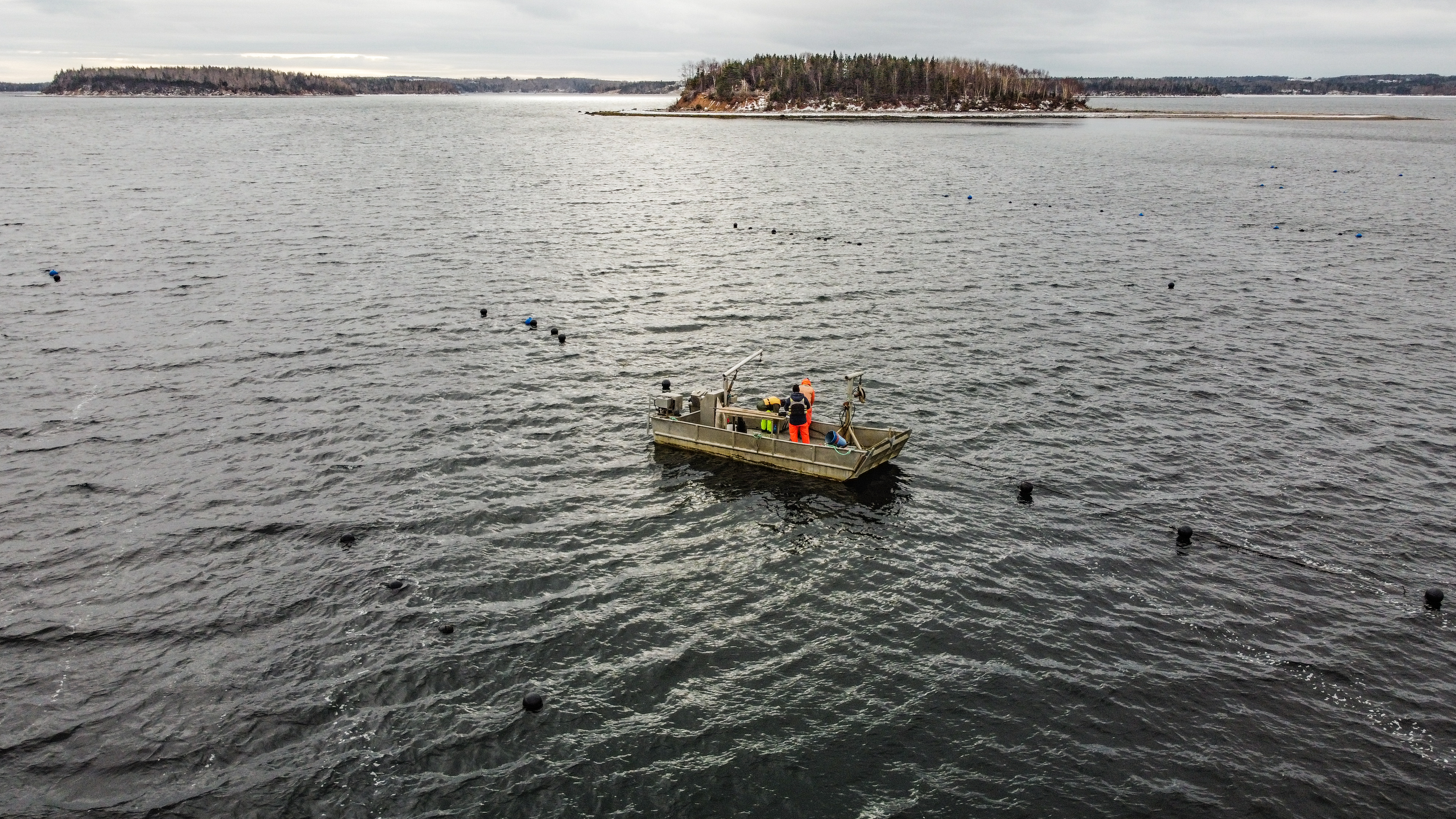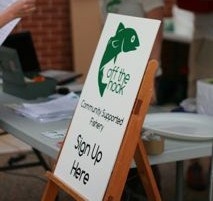Indigenous Peoples have millennia-old relations with the ocean and its inhabitants. Communities where generations have shared work and built cultural and social practices on the coasts are intricately entwined with the ocean.
As the Ecology Action Centre is interested in restoring the resilience of the natural ecosystem, we are similarly concerned with the resilience of coastal communities. Mi’kma’ki/Atlantic Canada’s coastal communities have been hard hit by the collapses of fish stocks and the subsequent consolidation of the fishing industry, as well as the use of increasingly “efficient” fishing gear. In our quest for ever-increasing efficiency and profit, we have lost the important diversity and decentralization of many of our coastal industries, seafood markets, and supply chains. This strategy has accumulated enormous wealth for increasingly few, but has often left our communities hollowed out and our supply systems increasingly exposed to global political, ecological, and social disruption.
The EAC works to showcase and support economic strategies and livelihood opportunities that are regenerative and within natural limits. A prosperous future for our coastal communities can only flourish with healthy and abundant ecosystems. A prosperous future needs policies and incentives that ensure economic benefits for the many and space for small-scale, owner-operator businesses to thrive. A prosperous future for coastal communities must include those previously marginalized from ocean opportunities. It must also include Nation-to-Nation relationships that move forward reconciliation and Indigenous rights to governance.
Our Vision for a Sustainable Blue Economy
Our Vision for a Sustainable Blue Economy

We work to ensure that justice, sustainability, and the protection of biodiversity are at the core of our coastal and marine economies. The Canadian government is in the process of developing a Blue Economy Strategy and we have engaged with this work by holding roundtables with industry and conservation groups and putting forward our vision for a blue economic strategy that offers an opportunity to transform our relationship with the ocean.
Unfortunately, to date, strategy drafts from the government are largely focused on investing in more and bigger extractive industries, “innovation and technology” as solutions for our biodiversity and climate crises, and continued pursuit of ever-increasing profit and Gros Domestic Product as a measure of success.
We believe the Blue Economy Strategy needs to be based on the following fundamental principles and policies:
-
Replenishing and protecting ocean abundance and biodiversity is the foundation for a healthy ocean and dependent economies.
-
Require immediate, deep emissions reduction in all activities and the phase out of fossil fuels production and use in the blue economy.
-
Centre communities, equity, justice, regenerative economic activities, and opportunities for marginalized people – do not prioritize the same powerful companies, people, and groups again and again.
-
Recognize and protect Indigenous rights to sovereignty and self-governance.
-
Policies and financial mechanisms need to foster and ensure equitable distribution and diffuse economic benefits based in communities.
-
Maintain and prioritize access to marine resources for food security and well-being.
-
Cumulative impacts and risk of all uses and activities must be understood and approached with precautionary, ecosystem-based monitoring and management.
-
Empower communities to lead inclusive, participatory planning and design governance processes that integrate all uses and developments.
-
Risk-based regulation and policy development should ensure activities with high ecological and climate impact and risk are more difficult to undertake, require higher monitoring, and receive less or no government financial support.
Coastal Livelihood Direct Support, Projects & Research
Coastal Livelihood Direct Support, Projects & Research
Here are some examples of the work we do to help restore and support the resilience of coastal communities and coastal livelihoods:
-
As part of our community outreach and education - and in collaboration with film director Martha Stiegman from Concordia University, the Bay of Fundy Marine Resource Centre and Bear River First Nations - we organized a film tour for “In the Same Boat?” The film tells two stories - one of the last handliner in Digby, Nova Scotia (The End of the Line) and the other of Bear River First Nation’s struggle to assert their Treaty rights to fish (In Defense of our Treaties). Both films address the challenges coastal communities face in maintaining sea-based livelihoods.
-
In 2019, we released our Statement of Support for Mi’kmaw Treaty Fishing Rights.
-
In 2013, we launched Slow Fish Nova Scotia and helped create Slow Fish Canada. Slow Fish is an international network which calls attention to small scale, artisanal fisheries and the communities that rely on them.
-
 From 2010 to 2016, together with five fishing families from the Bay of Fundy, we ran the first Community Supported Fishery (CSF) in Atlantic Canada, Off the Hook CSF. Off the Hook delivered “fresh, fair fish” to over 1,000 subscribers on a weekly basis. It ensured fishers received a fair price, as well as support from their customers and communities, to keep a low-impact way of fishing alive.
From 2010 to 2016, together with five fishing families from the Bay of Fundy, we ran the first Community Supported Fishery (CSF) in Atlantic Canada, Off the Hook CSF. Off the Hook delivered “fresh, fair fish” to over 1,000 subscribers on a weekly basis. It ensured fishers received a fair price, as well as support from their customers and communities, to keep a low-impact way of fishing alive.
-
Stay tuned for our upcoming report that digs into the successes and challenges of this co-operative business. Our hope is that by sharing our experiences - warts and all - that we can provide a resource that is useful to fishing cooperatives, environmental groups, funders, and even regulators that are interested in better supporting seafood direct marketing initiatives here in Nova Scotia. We deeply hope that these learnings and reflections will contribute to dialogue in Atlantic Canada and beyond about the future of seafood, coastal communities, and our food system.
-
We work directly with coastal communities to support sustainable fishing practices and the development of local fish markets. We work with the swordfish harpoon fleet to keep their century-old fishery alive. We have helped develop markets for trap caught shrimp from Chedabucto Bay. We have worked with divers to start a new hand-dug scallop fishery as an alternative to dragging across the ocean bottom for scallops. These efforts help support coastal livelihoods, increase food security, and encourage “food” tourism.
-
You can read our workshop report Social Impact Investing for Sustainable Fishing Communities to learn more about how we can maintain access to fisheries for communities and small-scale fishers. You can also check out our report Small Scale, Big Value: Creating a Value Chain to Support Atlantic Canada's Sustainable Fisheries to learn about what it might look like to create sustainable value chains for small scale fisheries.
-
Are you Kelp Kurious? Stay tuned for more news on an exciting new coastal livelihood project launching soon!

